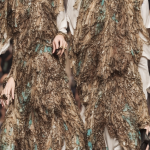When it comes to pet nutrition, every species has different needs. This is particularly true for pets from the reptile kingdom, which include lizards, turtles, and snakes, among others. Herbivorous reptiles, that primarily eat plants, have a unique set of dietary requirements. They require a carefully curated diet to stay healthy, vibrant, and live up to their full lifespan. As pet owners, you can ensure this by understanding your pet’s diet, feeding them correctly, and providing them the right vitamins and minerals.
Understanding Your Reptile’s Diet
To ensure your reptile pet gets the best nutrition, it’s critical to understand their diet. Reptiles, especially herbivorous species, have unique dietary needs. They should be fed a variety of fresh fruits, vegetables, and greens to ensure they get a balanced diet.
A voir aussi : What Innovations Are Shaping the Future of Portable Renewable Energy Devices?
Different species have different dietary preferences. For example, certain types of lizards, like iguanas, are strict herbivores. They thrive on a diet of leafy greens, vegetables, and fruits. On the other hand, tortoises also eat a range of fruits and vegetables but their diet should be primarily made up of leafy greens.
It’s crucial to research your specific species’s dietary needs as there can be some variation. A good rule of thumb is to aim for variety in their diet. Feeding a mix of different types of leafy greens, vegetables, and fruits ensures they get a range of nutrients. Remember, just like in humans, a diversified diet helps prevent nutritional deficiencies and contributes to the overall health of your pet.
En parallèle : How Can You Style Combat Boots for a Feminine Look?
Proper Feeding Techniques for Herbivorous Reptiles
Now that you understand the type of food your reptile needs, it’s time to focus on how to feed them. Providing the right food is only part of the equation. Knowing how to properly feed your pet is equally important.
Most herbivorous reptiles enjoy a diet that’s fresh and varied. A combination of fruits, vegetables, and greens should be offered, with the quantities depending on the specific species.
Try to mimic the feeding times of your pet’s natural environment. Most herbivorous reptiles eat during daylight hours. It’s best to feed them in the morning or early afternoon, giving them enough time to digest their food before their lights are turned off for the night.
Ensure the food pieces are appropriately sized for your pet. Too large pieces can be difficult for them to eat and might cause choking. Chop the food into bite-sized pieces, about as large as the space between your pet’s eyes.
A feeding dish can help keep the food clean and prevent it from getting mixed with the substrate. Some reptiles, however, prefer their food to be scattered around their enclosure, simulating a more natural feeding experience.
Remember, always remove uneaten food after 24 hours to prevent spoilage and growth of harmful bacteria.
Including Essential Vitamins and Minerals in Your Reptile’s Diet
While fruits, vegetables, and leafy greens provide many necessary nutrients, you also need to ensure your pet gets essential vitamins and minerals. Key among these are calcium and vitamin D3, critical for bone health and metabolic processes.
Calcium deficiency is a common issue in herbivorous reptiles and can lead to serious health issues like Metabolic Bone Disease. To prevent this, consider supplementing your pet’s diet with a calcium powder. This can be dusted onto their food, providing an easy way to boost their intake.
Vitamin D3 is another crucial nutrient. It helps the body absorb calcium and is typically produced when the animal is exposed to sunlight. Indoor pets might not get enough exposure, so a vitamin D3 supplement can be beneficial. Alternatively, UVB lighting in their enclosure can also stimulate vitamin D3 production.
Remember to consult with a vet or reptile nutrition expert before starting any supplementation regimen.
Ensuring A Hydrated and Healthy Reptile
Just as important as feeding your reptile a balanced diet is ensuring they stay well-hydrated. Water plays a key role in digestion and overall health.
Most herbivorous reptiles get their hydration from the food they eat. However, they should also have access to fresh, clean water at all times. A shallow water dish that’s easy for them to climb in and out of is typically the go-to choice.
Some reptiles prefer dripping water, so a drip system or misting their enclosure can be beneficial. Always monitor your pet to see what they prefer and adjust accordingly.
The Importance of Regular Vet Check-ups
Regular vet check-ups are crucial to ensure your reptile is getting the correct diet and nutrition. A vet can identify any nutritional deficiencies or issues early before they become serious health problems. They can also provide professional advice tailored to your pet’s species and individual needs.
Regular check-ups can help your reptile live a longer, healthier life. While it might seem like an additional expense, catching health issues early can save you from costly treatments down the line.
In conclusion, providing proper nutrition for your herbivorous reptile pet involves understanding their dietary needs, feeding them correctly, and ensuring they get essential vitamins, minerals, and hydration. Regular vet check-ups play an equally crucial role in ensuring your pet stays healthy and vibrant for years to come.
Providing the Right Environment for Herbivorous Reptiles
To ensure your pet reptile has the ability to digest and benefit from their diet, the environment they live in is key. Just like their dietary requirements, different reptile species have different habitat needs. It’s essential to mimic their natural environment as closely as possible.
For instance, bearded dragons, a common type of herbivorous reptile, thrive in warm habitats. They need a temperature gradient in their enclosure, with a basking spot that’s hotter than the rest of the tank. This is crucial for their digestion. Without the correct temperatures, bearded dragons can’t properly digest their food which might lead to health issues.
Humidity is another important factor. Too much humidity can lead to respiratory problems, while too little can cause dehydration. Check the humidity requirements for your specific pet species and maintain it at the appropriate level.
Reptiles, especially bearded dragons, also require UVB light to produce vitamin D3, a nutrient that aids in calcium absorption. Lack of UVB light can lead to metabolic bone disease, a common and serious health problem in pet reptiles. Consider installing a UVB light in your pet’s enclosure to ensure they get enough exposure.
Substrate or bedding is another critical aspect of your pet’s enclosure. Some substrates can cause impaction if ingested, so it’s essential to choose a safe option for your pet. For bearded dragons, newspaper, paper towels, or reptile carpet are often recommended.
The Role Of Live Prey In A Herbivorous Reptile’s Diet
While herbivorous reptiles primarily consume plant-based food, some reptile species also partake in occasional animal-based feedings. These types of meals, often referred to as live prey, can be an important part of a balanced diet for certain herbivorous reptiles such as bearded dragons.
For instance, juvenile bearded dragons have higher protein requirements and can benefit from a diet that includes live prey like crickets or mealworms. However, the prey must be smaller than the space between the reptile’s eyes to prevent choking.
Live prey can also serve as a source of crucial nutrients like calcium, phosphorus, and uric acid, which are essential for bone health and metabolic processes. However, feeding your pet too much animal-based food can lead to health issues like obesity, kidney disease, and gout, due to high levels of protein and uric acid.
Note that not all herbivorous reptiles need live prey in their diet. Always research your specific pet’s dietary needs and consult with a vet or a reptile nutrition expert before adding live prey to their diet.
In Conclusion
Caring for herbivorous reptiles encompasses understanding their unique dietary requirements, providing a suitable environment, and offering the right balance of plant and animal-based food items. Leafy greens should form the base of your pet’s diet, supplemented with other vegetables, fruits, and live prey (as per species requirements).
An equally important consideration is your pet’s hydration. Most herbivorous reptiles derive their hydration from their diet, but it’s also essential to provide fresh, clean water at all times.
In addition to providing the right foods, maintaining the right environmental conditions – temperature, humidity, lighting – plays a critical role in your reptile’s digestion and overall health.
Regular vet check-ups are also integral to catch any potential health issues early and to ensure your pet’s diet is meeting their nutritional needs.
Remember, every reptile is unique. Understanding your specific pet’s needs and behaviors will help ensure a happy, healthy life for your scaly companion. With the right care and attention, herbivorous reptiles can make fascinating, rewarding pets.










